
Everything You Need To Know About Aromatherapy
Aromatherapy is an ancient holistic practice that seeks to benefit well-being through the use of essential oils. Continue reading to learn more about aromatherapy, including its benefits, safety risks, different methods of application, history, and more!
We often underestimate just how influential different aromas can be in our daily lives. Certain odours conjure up certain memories, bringing up strong emotions in turn. But this is just the tip of the iceberg. Used for millennia, the concept of aromatherapy hinges on harnessing aromatic preparations to influence well-being.
Join us as we break down the key tenets of aromatherapy, its benefits, possible applications, and safety.
What is aromatherapy?
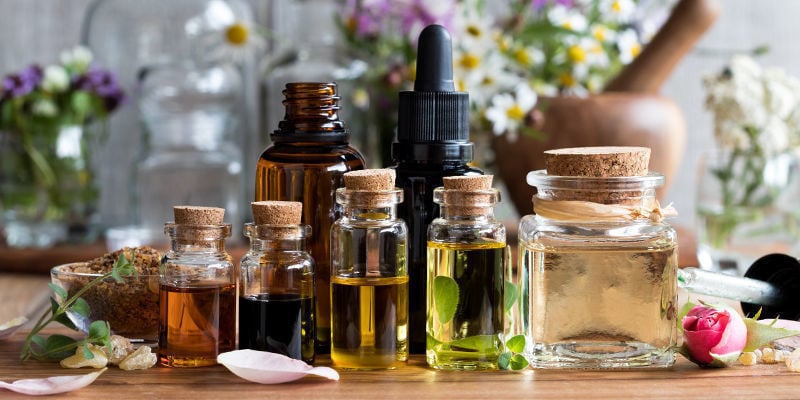
At its core, aromatherapy is a practice that employs essential oils to benefit physical and mental/emotional well-being. These oils are generally inhaled in the form of vapour from a diffuser, or applied to the skin after first being diluted in a carrier oil. Aromatherapy is considered an “alternative” wellness practice, in that it is not always backed by modern Western science. That said, that hasn’t stopped people from using essential oils from various natural substances to bolster different facets of their health.
There are a wide variety of essential oils employed in aromatherapy, and to different ends. While the following list is by no means definitive, some popular essential oils used in aromatherapy include:
- Eucalyptus
- Rosemary
- Lavender
- Ginger
- Peppermint
- Lemongrass
- Ylang ylang
- Tea tree
- Vetiver
- Grapefruit
Benefits of aromatherapy
When speaking about the potential benefits of aromatherapy, it’s important to recognise a couple of key factors. To start, given that different preparations are used to elicit different effects, aromatherapy is not a one-size-fits-all kind of practice. Therefore, if you’re looking to experience any of the potential benefits listed below, do your due diligence to determine which essential oils are most likely to help you achieve your goals.
Second, as mentioned, many of these potential benefits are not scientifically validated, so be sure to exercise good judgement and proceed with a healthy dose of scepticism.
Stress

One of the key purposes for which people use aromatherapy is to address stress. The modern world is filled with a constant barrage of stressors, and many people look to natural, non-pharmaceutical, and non-psychoactive products to help take the edge off. In this regard, small clinical trials have concluded that aromatherapy could be beneficial for the management of stress. One of these studies, conducted in 2009, concluded that aromatherapy could be a viable intervention for high school students in particular (Seo, 2009).
Among individuals experiencing stress, essential oils such as lavender, bergamot, and lemongrass are popular for relaxing the mind and easing tension.
Sleep

Good sleep is essential to good health, but many of us experience issues in this domain. But it doesn’t have to be that way. Thankfully, aromatherapy is particularly well-suited to helping people drift off into a cosy slumber. Here too, lavender oil can be very helpful for releasing physical and mental tension, getting the body ready for sleep. Chamomile oil is another option for those who enjoy its fresh and warm scent. Might we suggest pairing it with a cup of chamomile tea?
In a clinical context, a 2021 review and meta-analysis determined that aromatherapy had a statistically significant effect on sleep among adult and elderly participants across 30 included studies (Her & Cho, 2021). Though the data is still inconclusive, it opens the door for greater research on the effects of aromatherapy on sleep.
Mood
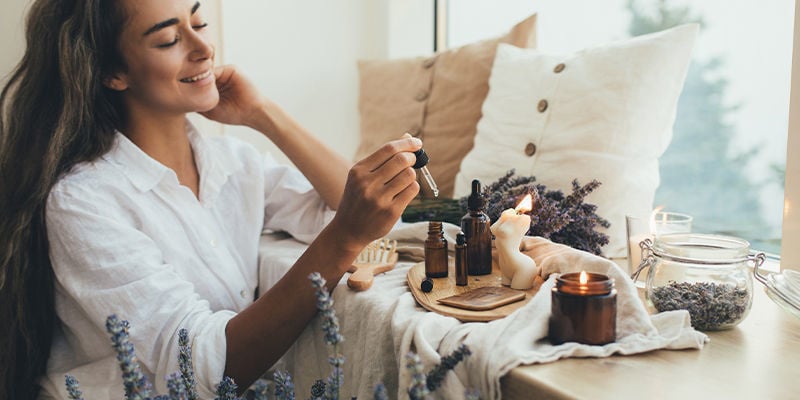
Another area in which aromatherapy is widely used is for enhancing the mood. A 2017 meta-analysis analysed 12 studies related to aromatherapy and depressive symptoms, generating mixed results. However, the study authors suggest that aromatherapy massage may be more effective for boosting the mood than inhalation (Sánchez-Vidaña et al., 2017).
If you’re looking for a mood boost at home, consider trying citrus oils, peppermint, or rosemary. All of these essential oils have an invigorating quality that can help to not only enhance the mood, but give you an energy lift as well.
Immune system
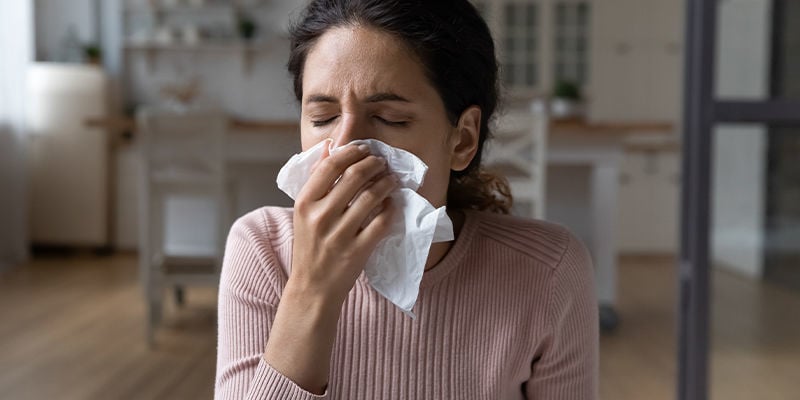
With an increase of immune-mediated inflammatory diseases in the modern era, many people are seeking natural ways to curb inflammation and support their immune system.
In the arena of immune function, certain essential oils appear to elicit supposed “immune function enhancing” or “balancing” properties, according to a 2019 review on the potential of essential oils to support the immune system. The review authors highlight two specific essential oils of note in this regard—eucalyptus and ginger (Peterfalvi et al., 2019).
Other potential benefits
The above represents only a selection of the possible benefits associated with aromatherapy. Other preliminary studies and anecdotal accounts credit certain essential oils for offering benefits related to:
- Digestion
- Physical tension and discomfort
- Cognitive function
- Circulation
- Labour pain
How to use aromatherapy
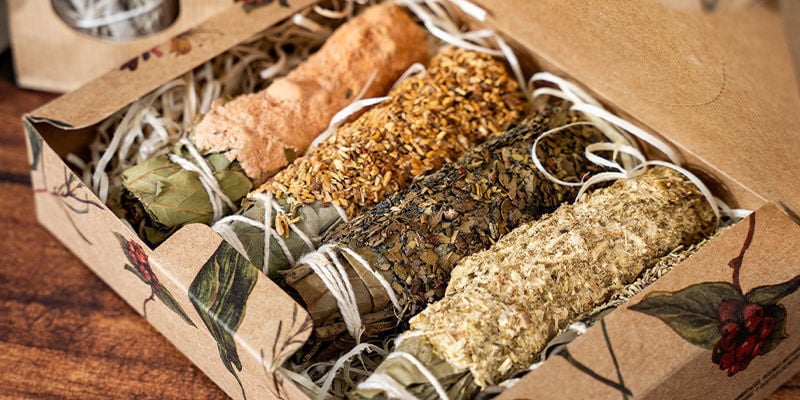
Aromatherapy is a versatile practice that encompasses multiple modes and applications. As mentioned, perhaps the most popular form of aromatherapy is inhalation of essential oil vapour, but there are other ways to incorporate the practice into your life.
- Diffusion
This classic method pairs essential oils with a diffuser, which turns the oil into fine mist that can be inhaled. Diffusers of all price points can be purchased, and they can be paired with all manner of essential oils, depending on what you’re looking to achieve.
- Massage
Aromatherapy massage has a wide range of potential applications, and is considered by some to be the most effective form of aromatherapy for enhancing both physical and mental wellness.
Incense sticks or cones release scents that can aid meditation, support sleep, or simply create a relaxing ambiance. You can find all sorts of aromatherapy incense online and in stores.
- Bath
Want to bring the world of aromatherapy to your bath experience? Choose from a selection of infused bath bombs, salts, and soaks that will have you reaching newfound levels of bliss and relaxation.
- Skin
Essential oils can also be applied to the skin—but they must be diluted in a carrier oil first! Once combined, this aromatic oil can be applied to specific areas of the body to invigorate and/or soothe.
History of aromatherapy

The use of aromatherapy dates back to at least 3,500 BCE, though some sources argue that it extends back much further than this. Regardless of its exact origins, aromatherapy has been used across a wide variety of cultures to different degrees, from the ancient Egyptians to the Greeks. Hippocrates, considered the father of modern medicine, helped to advocate the use of holistic preparations, which included a wide array of aromatic herbs.
However, it wasn’t until the 20th century that aromatherapy as we know it in the Western world today was introduced. The term was coined in 1935 by chemist René-Maurice Gattefossé, who experienced the antimicrobial benefits of lavender essential oil when he badly burned his hands in 1910 (René-Maurice Gattefossé, n.d.). From this point on, he would share his knowledge, and, among other individuals, set the stage for the modern era of aromatherapy.
Modern essential oils used in aromatherapy are generally achieved through steam distillation, though other methods, such as solvent extraction and cold-press extraction, are also employed, depending on the type of plant material and the final product.
Safety

There are a few important safety issues to consider with aromatherapy.
Chiefly, it is important to never apply undiluted essential oil directly to the skin. Essential oils are extremely concentrated, and, despite being natural, are harsh chemicals. Therefore, if you’re looking to apply essential oils to the skin, always dilute them in an appropriate carrier oil first, such as argan oil or jojoba oil. Most essential oil products suggest adding just a drop or two to your chosen carrier oil before applying it to the skin. For adults, a dilution of 5% is generally considered to be the max amount that is safe to use.
Additionally, it’s important to ensure you’re not allergic to any ingredients in your essential oil before applying it liberally to the skin. To prevent any issues, do a patch test first: add a small amount of the diluted oil (at twice the strength you would normally use) to a small area of skin and wait at least a day to see if you have any reaction.
In some cases, essential oils can interact with medications and potentially exacerbate certain symptoms or conditions, so it’s always advised to speak with a healthcare professional before using essential oils, especially if you have any existing conditions.
Note that essential oils should not be ingested, as this can cause all manner of health issues.
Finally, it’s important to note that the quality and constituents of aromatherapy products vary greatly. As there are very few standards for quality or labelling enforced, brands can market products as essential oils even if they aren’t. These products can also contain contaminants that are dangerous if inhaled or applied topically. For this reason, it’s crucial to purchase products from trusted suppliers of essential oils.
Enter the world of aromatherapy
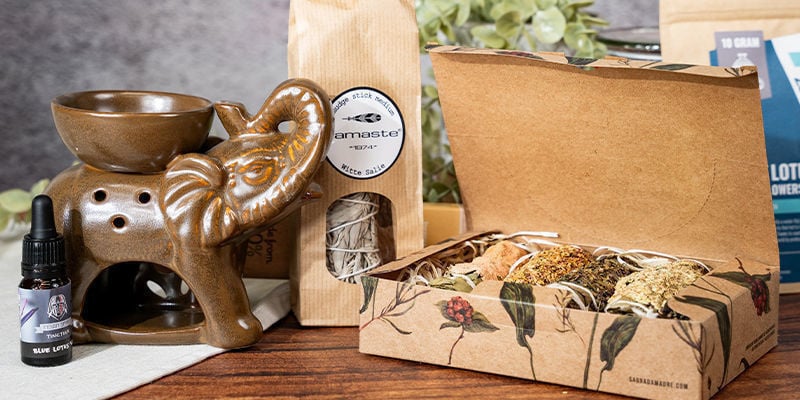
As this article has touched upon, the world of aromatherapy is vast, to say the least. If you’re interested in giving it a go for yourself, make sure to research which essential oils and methods of application are most suitable for your goals. And most of all, be sure to source your products from trusted brands, including us at Zamnesia, to ensure you don't come into contact with any harmful ingredients. After all, aromatherapy is all about a holistic approach to well-being!
- Agnes Peterfalvi, Eva Miko, Tamas Nagy, Barbara Reger, Diana Simon, Attila Miseta, Boldizsár Czéh, & Laszlo Szereday. (2019, December). Much More Than a Pleasant Scent: A Review on Essential Oils Supporting the Immune System - https://www.ncbi.nlm.nih.gov
- Dalinda Isabel Sánchez-Vidaña, Shirley Pui-Ching Ngai, Wanjia He, Jason Ka-Wing Chow, Benson Wui-Man Lau, & Hector Wing-Hong Tsang. (2017). The Effectiveness of Aromatherapy for Depressive Symptoms: A Systematic Review - https://www.ncbi.nlm.nih.gov
- Her J, & Cho MK. (2021 Aug). Effect of aromatherapy on sleep quality of adults and elderly people: A systematic literature review and meta-analysis - https://pubmed.ncbi.nlm.nih.gov
- René-Maurice Gattefossé. (-). Fondation Gattefossé - https://www.fondation-gattefosse.org
- Seo JY. (2009 Jun). [The effects of aromatherapy on stress and stress responses in adolescents] - https://pubmed.ncbi.nlm.nih.gov
-
 2 min
26 October 2019
5 San Pedro Cactus Myths Debunked
The San Pedro cactus is a plant native to the South American Andes. It contains mescaline, a psychedelic compound found in numerous other cacti across the Americas. Many myths have evolved around...
2 min
26 October 2019
5 San Pedro Cactus Myths Debunked
The San Pedro cactus is a plant native to the South American Andes. It contains mescaline, a psychedelic compound found in numerous other cacti across the Americas. Many myths have evolved around...
-
 3 min
14 November 2018
Ayahuasca Myths Debunked!
We're diving into the misconceptions of the South American brew, Ayahuasca. Read on to see what's really true about this mysterious drink, and what is simply myth.
3 min
14 November 2018
Ayahuasca Myths Debunked!
We're diving into the misconceptions of the South American brew, Ayahuasca. Read on to see what's really true about this mysterious drink, and what is simply myth.
-
 4 min
14 November 2016
5 Myths About Absinthe
Absinthe, the green fairy has made its revival in Europe after decades of being banned. Many myths deserve to be busted. Let's do it for the green fairy!
4 min
14 November 2016
5 Myths About Absinthe
Absinthe, the green fairy has made its revival in Europe after decades of being banned. Many myths deserve to be busted. Let's do it for the green fairy!
-
 3 min
10 August 2015
5 Myths About Growing Cannabis - Debunked
Despite what many think, growing cannabis is dead easy. Sure, it is a tricky beast to master, but any novice can put seed to soil and still get results. However, many potential growers are put...
3 min
10 August 2015
5 Myths About Growing Cannabis - Debunked
Despite what many think, growing cannabis is dead easy. Sure, it is a tricky beast to master, but any novice can put seed to soil and still get results. However, many potential growers are put...













 United States
United States










